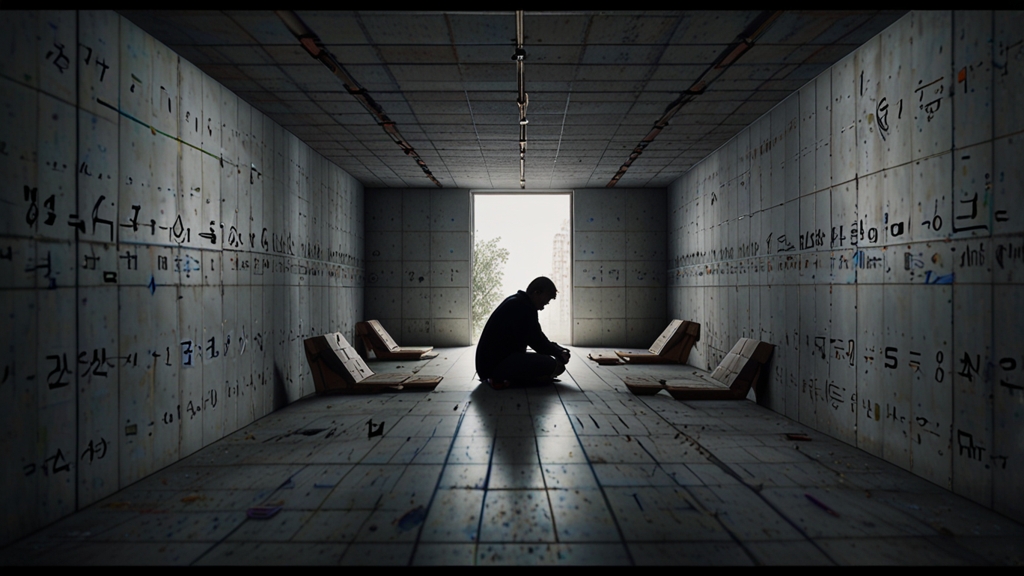Are We Witnessing an Exodus of the Mind?
The digital age, characterized by rapid technological advancements, has transformed the way we think, learn, and interact. However, with the increasing reliance on digital devices and the internet, there are growing concerns about what some experts call an "Exodus of the Mind." This term encapsulates the idea that our mental faculties are deteriorating as we delegate more of our cognitive functions to technology. But is this phenomenon real, and if so, what are its implications?
The Changing Landscape of Cognitive Function
The human brain has always been adaptable, evolving to meet the demands of different environments and challenges. In today's digital era, the challenges are unique. We have unprecedented access to information, and yet, there are indications that our cognitive abilities are changing, and not necessarily for the better. Researchers have noted declines in critical thinking skills, memory retention, and the ability to concentrate for extended periods.
"The more we rely on technology to manage our interactions and fulfill our basic tasks, the less we engage the full range of our cognitive abilities. This can lead to a form of mental atrophy," warns Dr. Laura Nash, a cognitive scientist at the University of Edinburgh.
Offloading Cognitive Tasks
One significant way technology impacts our minds is through cognitive offloading—the process of relying on external tools to handle tasks we used to manage internally. For example, people no longer need to memorize phone numbers or remember meeting schedules because their smartphones take care of these details. While this might seem like an efficient use of resources, the downside is that the brain isn't being exercised as it once was.
This convenience may come at a cost. Studies have shown that relying excessively on GPS navigation, for instance, reduces the capacity of the hippocampus, a brain region involved in memory and navigation. Similarly, reliance on digital note-taking can impair the ability to store information long-term, compared to the traditional method of writing by hand.
The Impact on Creativity and Deep Thinking
Another concern is that the constant bombardment of information from digital devices hinders our ability to engage in deep, reflective thinking. The modern work environment often requires multitasking, which can disrupt the flow state - a mental state of deep focus that is crucial for creative endeavors and problem-solving.
"Creativity requires time and mental space to germinate ideas. When we fill every spare moment with digital distractions, we lose the quiet mental environment that fosters discovery and innovation," notes Susan Greenfield, a neuroscientist and author.
The Social Dimension
Beyond individual cognitive changes, there is also a social dimension to consider. Social media and digital communication platforms have changed the way we connect and engage with each other. While these technologies have undoubtedly made the world more connected, they have also led to more superficial interactions. Empathy, emotional intelligence, and other social skills are honed through face-to-face interactions, which are increasingly being substituted with digital conversations.
The implications extend to mental health as well. There is a growing body of evidence suggesting that excessive use of social media and digital devices is linked to increased rates of anxiety, depression, and loneliness, particularly among young people. This social shift is another facet of the so-called Exodus of the Mind.
Mitigating the Effects
While the Exodus of the Mind raises valid concerns, there are ways to mitigate its effects. Digital detoxes, mindfulness practices, and setting boundaries for technology use are some strategies that can help preserve cognitive functions. Encouraging activities that promote deep thinking, such as reading, meditating, and engaging in creative pursuits, can also counteract the mental drift caused by excessive digital consumption.
Moreover, it is crucial to adopt a balanced approach to technology. Instead of viewing it as a replacement for mental effort, we can use it as a tool to enhance our cognitive abilities. For instance, using educational apps that promote active learning and critical thinking can supplement traditional educational methods rather than replace them.
Conclusion
So, are we witnessing an Exodus of the Mind? The evidence suggests that the rapid integration of technology into our daily lives is indeed affecting our cognitive functions in significant ways. However, whether this is an irreversible trend or a challenge we can overcome depends largely on how we choose to engage with technology moving forward. By being mindful of our digital consumption and actively nurturing our mental faculties, we can strive to harness the benefits of technology without succumbing to its pitfalls.
"Technology is a useful servant but a dangerous master." - Christian Lous Lange










